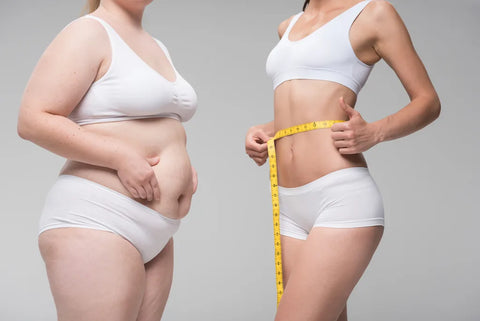There is a deluge of information available if you've been thinking about not nursing your new-born, but the advantages are immeasurable. Let's go over all the advantages for you and the baby before you decide (or if you simply need confirmation that breastfeeding is the best option for you).
The advantages of breastfeeding last for at least two years, according to the World Health Organization (WHO), and longer. For the greatest advantages, these organisations advise beginning as soon as an hour after delivery. This article divides the advantages of nursing for infants and the advantages for breastfeeding moms' health into two sections.
Health benefits of breastfeeding for kids

⒈ Breast milk offers new-borns the best nutrition
Most medical practitioners advise nursing exclusively for at least six months and preferably much longer. Everything a new-born need in the proper amounts for the first six months of life is present in breast milk. It's made up of different ingredients depending on the baby's changing demands, especially in the first month of life.
Your breasts generate colostrum, a viscous, yellowish fluid, in the early postpartum period. It has a lot of healthy ingredients and is rich in protein and low in sugar. It is a true miracle meal that cannot be replaced by formula.
The best first milk is colostrum, which supports the development of the new-born’s developing digestive system. The breasts produce more milk as the baby's tummy develops after the first few days. The only thing that could be missing from your supply of miraculous milk is vitamin D. Breast milk won't supply enough unless you consume a lot of it (which most people don't). Drops of vitamin D are typically advised.

⒉ Breast milk contains important antibodies
In those delicate early months, antibodies found in breast milk are crucial for helping your infant fight off viruses and germs. This is especially true of the first milk, colostrum. Immunoglobulin A (IgA), as well as several other antibodies, are abundant in colostrum.
Antibodies that you begin to produce after exposure to viruses or bacteria end up in the milk. Immunity, By creating a barrier in the baby's nose, throat, and digestive tract, IgA guards against illness; Babies' antibodies are not protected by formula, numerous studies demonstrate that infants not breastfed are more susceptible to infections, pneumonia, and other illnesses.
⒊ Breastfeeding may reduce disease riskExclusive nursing, in which the new-born solely consumes breast milk, is advantageous. It might lower your baby's chance of contracting a variety of conditions, including:
❤ Middle ear infections: Even beyond infancy, breastfeeding, especially exclusively and for as long as feasible, may offer protection against sinus, middle ear, and throat infections.
❤ Respiratory tract infections: Breastfeeding can shield a child from several acute respiratory and gastrointestinal infections.
❤ Colds and infections: Babies breastfed exclusively for six months may experience less severe colds and ear or throat infections.
❤ Gut infections: Gut infections are thought to be less common in breastfeeding mothers.
Intestinal tissue damage: Breastfeeding preterm infants is associated with a decrease in necrotising enterocolitis.
❤ Sudden infant death syndrome (SIDS): When nursing exclusively, there is a relationship between breastfeeding and a lower incidence of SIDS.
❤ Allergic diseases: Asthma, atopic dermatitis, and eczema risk are all believed to be decreased by breastfeeding.
❤ Bowel diseases: Crohn's disease and ulcerative colitis may be less likely to occur in breastfed infants.
❤ Diabetes: Type 1 diabetes and non-insulin-dependent (type 2) diabetes are connected to a lower risk of development in breastfeeding mothers.
❤ Childhood leukaemia: There is evidence that breastfeeding lowers the risk of paediatric leukaemia.

⒋ Breast milk promotes the baby’s healthy weight
Breastfeeding helps reduce childhood obesity and encourages healthy weight gain. According to one study, the likelihood of a baby becoming overweight and obese is significantly decreased if breastfeeding continues for more than four months. The diversification of gut microorganisms could bring this on. Healthy gut flora is more prevalent in breastfed new-borns, which may impact how fat is stored.
Breastfed babies have higher levels of leptin in their bodies than new-borns who are fed formula. An important hormone for controlling hunger and fat accumulation is leptin. Babies that are breastfed self-regulate how much milk they consume. They are better at eating only until they are full, which aids in developing wholesome eating habits.

⒌ Breastfeeding may make baby smarter
Babies that are breastfed may do better on such exams. According to certain research, breastfed and formula-fed new-borns’ brain development may differ. This distinction could result from the nutritious composition of breastmilk and the closeness, touch, and eye contact that are part of nursing.
According to studies, breastfed infants score more highly on IQ tests and are less likely to experience behavioural issues or learning challenges as they age. However, preterm infants with a higher risk for developmental problems experience the most noticeable consequences. The evidence unequivocally demonstrates that nursing benefits a baby's long-term brain development.
Breastfeeding benefits for mothers

⒍ Breastfeeding may help you lose weight
Perhaps you've heard this one before. While some women appear to put on weight while breastfeeding, others do so without effort. Compared to non-lactating women, breastfeeding burns more calories, and after three months of lactation, you'll probably see an increase in fat burning. However, there isn't much of a difference.
⒎ Breastfeeding helps the uterus contractYour uterus increases significantly throughout pregnancy, going from the size of a pear to nearly taking up the whole area of your belly. Your uterus undergoes a process known as involution after birth that aids its growth back to its pre-pregnancy size. The pregnancy-related rise aids this process in the hormone oxytocin.
Your body produces large oxytocin during labour to aid delivery and lessen bleeding. You may feel closer to your new baby as a result of it. Breastfeeding causes a rise in oxytocin as well. It promotes uterine contractions and lessens bleeding, which aids in the uterus expanding back to its original size. Additionally, studies have demonstrated that breastfeeding moms often experience less postpartum blood loss and more rapid uterine involution.

⒏ Mothers who breastfeed have a lower risk of depression
Postpartum depression (PPD) is a kind of depression that can develop quickly after giving birth. Women who breastfeed tend to be less likely to have postpartum depression than mothers who prematurely wean their infants or decide not to nurse, according to a 2012 study.
However, women who suffer postpartum depression quickly after giving birth have a higher likelihood of struggling with breastfeeding and tend to do so for a shorter period. Inform your doctor as soon as possible if you have any PPD symptoms.
⒐ Breastfeeding reduces your disease riskIt appears that breastfeeding offers long-term protection from cancer and other disorders. Breast and ovarian cancer risk are inversely correlated with a woman's duration of breastfeeding. Breastfeeding reduces a woman's chances of:
- ❌ high blood pressure
- ❌ arthritis
- ❌ high blood fats
- ❌ heart disease
- ❌ type 2 diabetes

⒑ It saves time and money
The most affordable option is breastfeeding, excluding costs for breast pumps and any lactation consultations. If you decide to breastfeed, you will avoid having to:
- ✔ Spend money on formula,
- ✔ Determine how much your infant should drink each day,
- ✔ Spend time sterilising and cleaning bottles,
- ✔ Mix and warm up bottles in the middle of the night (or day).
- ✔ Discover portable bottle-warming techniques
Breast milk is at the ideal temperature and prepared for consumption.










